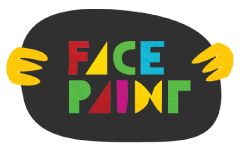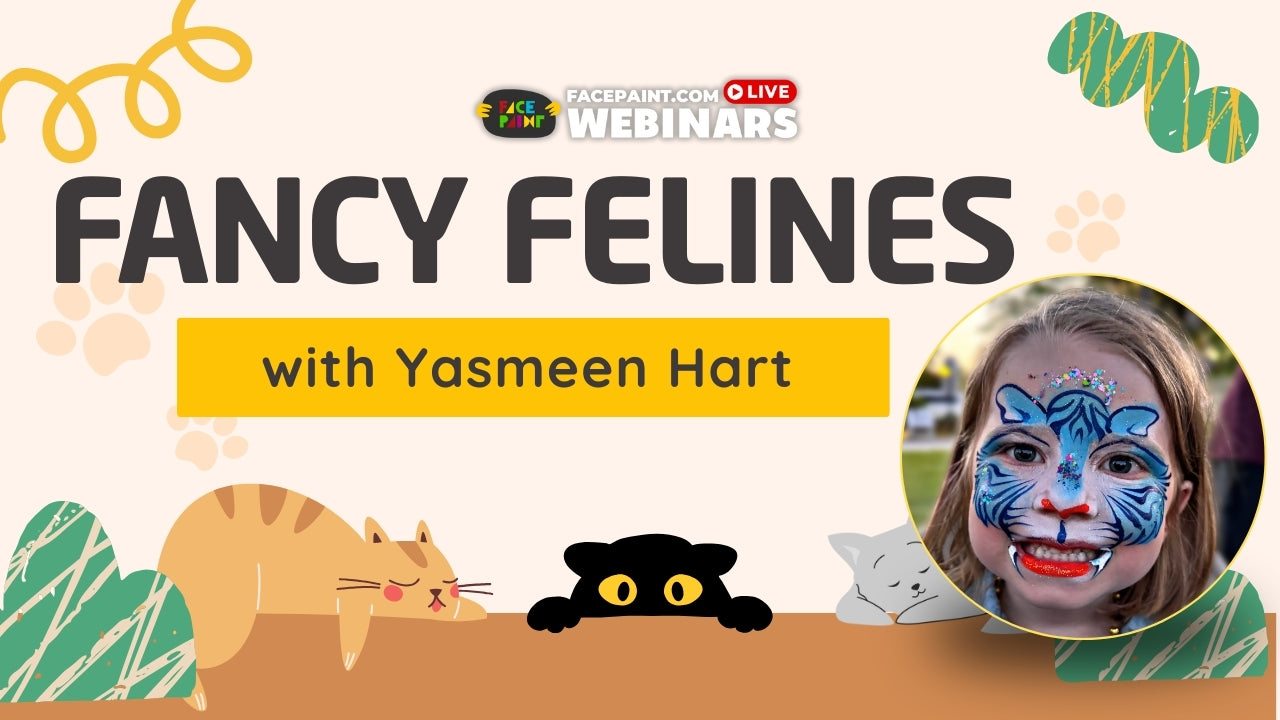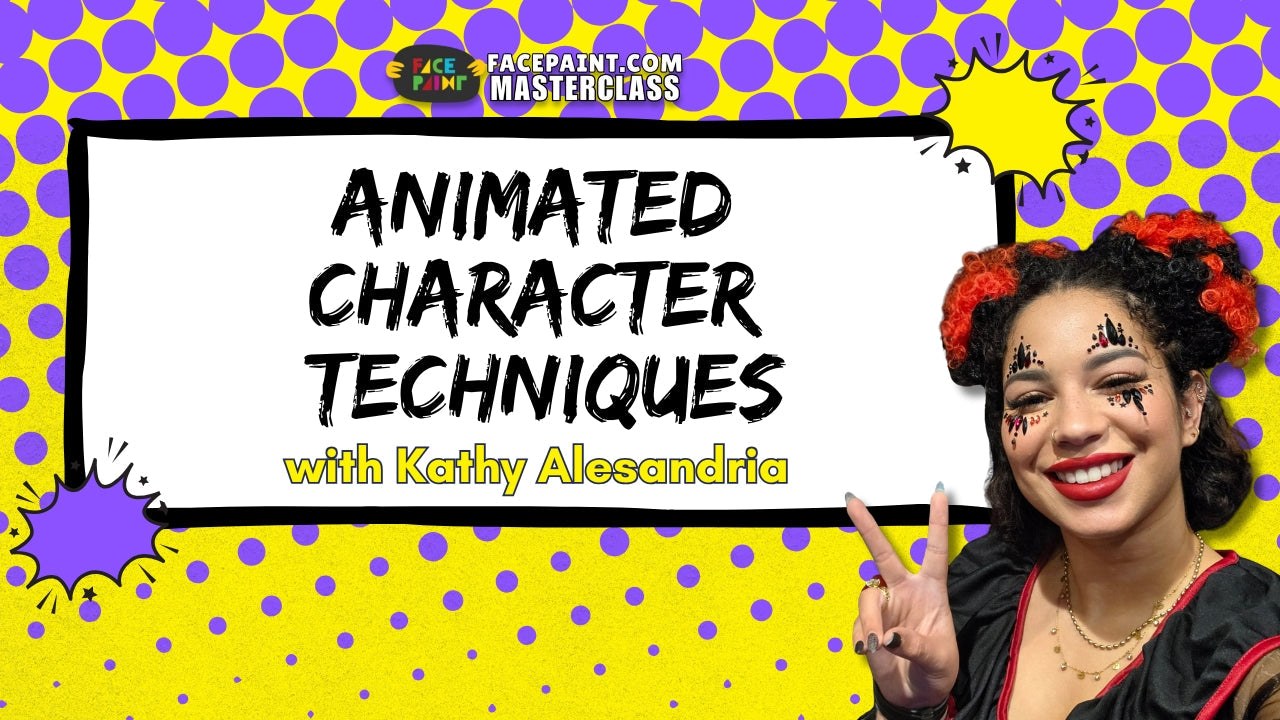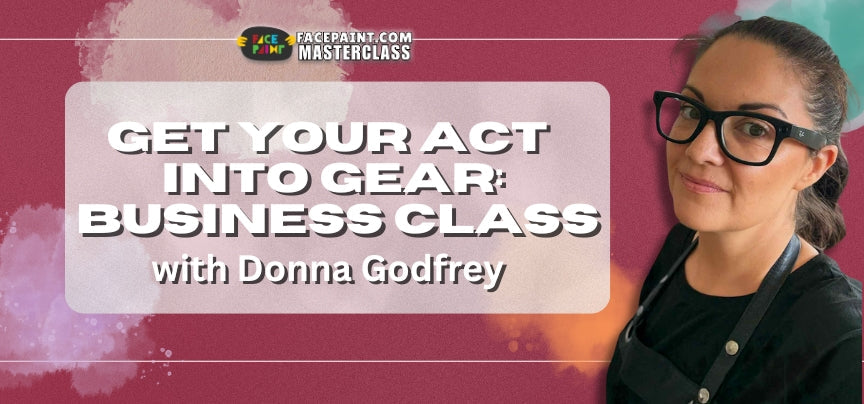In this webinar, Beth MacKinney shares her Covid-19 face paint safety measures.
"We're gonna be talking about things that we can do to keep our kit really clean and hopefully--not just with Covid-19, but also with any kind of virus. We want to make sure that our kits are clean and hygienic, that we have systems set up so we never spread any germs if at all possible with face painting. Face painting tends to be a very close proximity activity [so] we do have to take extra precaution as artists and be aware of the kids in the line, the guests in the line, if they're healthy or not, and have a well child policy in place, and to be cleaning our supplies and our equipment thoroughly as we're using them and after we use them to make sure that we don't put anyone at risk.
I have a system that I've been setting up that I've started using--I already was using Brush Bath and two wells of water for rinsing, but with Covid-19 out there I'm also adding 70% isopropyl alcohol to another one of my containers so that I'm going through this system to keep my brushes really clean. Alcohol is probably gonna be a little hard on them but I think sacrificing a few brushes is not the end of the world and I can replace those. People are more important so we wanna make sure we're keeping them safe.
I have here my four containers. The first container has water and Brush Bath. There are other cleaners that are also available but the reason I use Brush Bath specifically is that it's also a makeup remover so it's very gentle for the skin. You don't wanna use any kind of soap that's gonna be harsh in any way. Another soap that's considered somewhat mild would be baby shampoo. In the next well, I put 70% isopropyl alcohol. The 70% is kind of important because of the water content. It doesn't evaporate as quickly and it also penetrates the cell wall better and it's better about killing proteins. From what I understand, once you get beyond 90%, it causes the proteins in a cell to become dormant rather than being killed. You want the percentage between 70 and 90% but not over 90%. This next well is just water and I would use that for rinsing my brush, getting anything from the soap or rubbing alcohol off it. The last well is just clear water. I also have clear water in a spray bottle that I can spritz very lightly onto my face paints.
I'll clean my brush in the [soapy water]. I also have several blotting paper towels. So blot the wet brush on a paper towel. Then I’d clean it in the rubbing alcohol and I'd really give it a few seconds in there. It is gonna slow you down, I wouldn't be able to do high volume [events] very quickly with this. Blot that on another paper towel. Then I would rinse straight water to get off any residual rubbing alcohol, soap, then blot. If I needed plain water to take to the face paints, I'd use that clear water. That's my system for cleaning the brushes. If this system's been followed rigorously, no germs should be on the paints.
Rubbing alcohol can be a little harder on the brushes, but when I'm done I use Masters Brush Soap to condition my brushes and that helps them last a little longer and cleans them at the end as well. I'd say the bigger difficulty is sponges. Artists that use one sponge per color need to probably change that to make sure that they are not going to take something from a child to the face paint and then to the next child in line. I would suggest possibly just forgoing sponges entirely, at least for a while. I have an airbrush kit set up just for face painting. Instead of using a sponge, I use that and it would give me a nice, really even base. If you have airbrushes, you could do that temporarily.
If you insist on using sponges, you could cut your sponges in smaller pieces. [After you use one], what you may want to do instead is retire that sponge and bring out a new sponge. You could really load it well and then spritz it a little bit with water to activate what's on the sponge to try to go back without having to go back to the face paint. In some countries, you're not allowed to wash sponges and reuse them. In some countries, you can wash the sponge and reuse, but if you're gonna wash the sponge you have to find a way to disinfect it. I usually wash my sponges by hand with detergent.
I would highly suggest ordering some nitrile gloves and wearing them. When you're wearing gloves, you're less likely to touch your face because you're very aware that something's on your hands. I'm cautious when I'm working around kids and very attentive to whether or not they're sick. But the nitrile gloves will help you stay aware of not touching your face. I think it'll help. They are non-latex so for people that have latex issues, refrain from using them.
Another option for face paint is liquid face paints. Mehron has liquid face paints. You could always take a palette and just put the paint colors you need per event on that palette and then wash it when you're done. It's more expensive but it will be more hygienic.
During events, I would recommend posting a “well child policy” at your events. I've also seen artists who have suggested that guests hand sanitize before they get into the chair. I have a chair cover, which I launder between events. I would do that as well. Consider having parents wipe down a child's face before they’re face painted, if you are gonna continue face painting. I'd suggest starting at the forehead and going down toward the chin 'cause more stuff is probably gonna be around the mouth. You could also suggest to the parent to just do arm painting. Swab their arm with rubbing alcohol then paint it and then go through your whole system for cleaning your brushes.
Be alert. Listen to the line. I would not paint a child who was coughing. Make sure you're washing your hands in addition to using hand sanitizer. Keep your kit covered while you’re working. I would also recommend turning the chairs so it faces away from your kit so the child isn't looking right at your kit where they can cough. A lot of times kids will crowd up in my area [while working]. You may want to move them back and not have them crowd so much so that they're not standing right at your kit. Try to position your kit in such a way that the line isn't near it. If you feel unwell, just get a replacement. It's not worth the money to spread anything. It's probably not Covid-19, but if you don't feel well just get someone else to replace you for your events.
I think it would put parents' minds at ease to see the system [and] see everything's clean. Take this time and clean your kit thoroughly and organize it. Make it look clean. Parents are gonna be looking at that now more than ever. In the United States, there are not a lot of regulations for face painting. It's a good idea for us as an industry to self-regulate and to put down really stringent health policies for our own companies. By doing that, we're gonna help our industry and we're also gonna keep ourselves and our clients healthy, so it's important."
For more details and information, you can watch the entire webinar now in the video above or later at our YouTube channel. Thank you, Beth, for sharing your tips with us! Thank you to everyone who tuned in to the webinar. Click here to know our upcoming webinars.
 FREE SHIPPING FOR USA ORDERS OVER $100
FREE SHIPPING FOR USA ORDERS OVER $100








Leave a comment (all fields required)